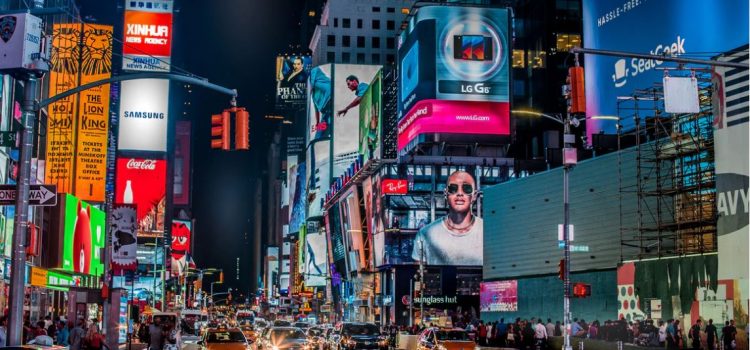

This article is an excerpt from the Shortform book guide to "What Money Can't Buy" by Michael J. Sandel. Shortform has the world's best summaries and analyses of books you should be reading.
Like this article? Sign up for a free trial here .
What are the main issues with market societies? How can a market society affect the happiness of its citizens?
A market society is one in which market values deeply intertwine with the daily lives of the people who live in it. The intrusion of markets into every aspect of life comes with a handful of issues, including a strong social impact.
Let’s explore the social impact of living in a market society.
Problems With Market Societies
We’ve seen Sandel argue that the intrusion of markets into non-market spheres of life exploits the vulnerable, deprives us of choices we would otherwise have, and degrades our virtues as a society. Here, we’ll explore the social impact of living in a market society—how it affects our relationships to one another, dilutes our understanding of ourselves as a shared community, and makes us less happy as individuals.
Advertising in Public Spaces
Sandel notes that the intrusion of market forces into non-market spaces can often be seen literally, in the form of prominent commercial advertisements in the kinds of public spaces where they were once off-limits. He argues that the clutter of advertising and its intrusion into non-traditional spaces changes not only the aesthetics of the physical space, but also the ways we experience them.
Sandel observes that advertisements have permeated into nearly all aspects of social, civic, and public life—you can find them in city squares, public transportation systems, sports stadiums, government buildings, educational institutions, and even houses of worship all over the world. Firstly, notes Sandel, this can be an eyesore that detracts from the physical beauty and historic character of such places—for example, it certainly seems garish and unsightly to see giant billboards for brands like Guess and Coca-Cola draping Venice’s Piazza San Marco.
(Shortform note: Responding to the intrusion of distracting video billboards into the urban core of historic French cities like Lille and Grenoble, some activists and municipalities in France are attempting to ban public advertising altogether. This antipathy to advertising builds upon a long tradition of anti-commercialism among certain French intellectuals, who argue that advertising is incompatible with democracy and an assault on public spaces. These spaces are funded by the public and are meant to be used and enjoyed by the public, not for corporate profit extraction.)
But on a deeper level, writes Sandel, these forms of advertising undermine the collective spirit of our public spaces, where people come to enjoy shared cultural activities, participate in civic life, and appreciate aesthetic beauty. Sandel argues that filling these spaces with eye-catching and garishly commercial advertising irrevocably alters their character and severs our connections to one another as a community: We are no longer full and equal citizens congregating in the public square. Instead, we lose our shared, communal identity and become a collection of individual, atomized consumers.
| The Rise of Loneliness Sandel writes that advertising and the rise of a consumer-focused society have undermined our collective spirit and isolated us from one another. Sure enough, social science research shows that loneliness has been increasing since 2015, with nearly one-third of American millennials reporting feeling isolated and unconnected. In the UK, then-Prime Minister Theresa May even appointed a Minister for Loneliness to tackle what she called, “the sad reality of modern life.” Ironically, however, the forces of unfettered capitalism that Sandel and others blame for this rising social alienation and unquenched thirst for human connection have sprung into action to profit from it. This can be seen with the growing popularity of commercial services like RentaFriend, in which users pay an individual $40 per hour to serve as a temporary friend; or professional cuddlers, who are paid as much as $80 per hour to cuddle and caress their clients. |
A Market Society Is a Divided Society
Sandel writes that a market society tends to lead to a wealth gap—where more and more wealth is concentrated in the hands of fewer and fewer people. Beyond its economic or political consequences, however, Sandel is primarily concerned with the social consequences of inequality. Specifically, he warns that the financial gap between the affluent and the poor leads to social divisions, in which these groups share fewer and fewer common spaces and experiences.
| The Growing Divergence of Rich and Poor There is data supporting Sandel’s assertion that rich and poor people lead separate lives, at least with regard to housing. One study found that, in 1980, only about 12% of the US population lived in areas that were either extremely rich or extremely poor in terms of median household income. By 2013, that number had jumped to over 30%. What this reflects, the researchers argue, is a growing polarization and stratification that is increasingly evident in the spatial distribution of the national population—rich people are choosing to live in affluent neighborhoods where they only interact with other rich people, while poorer Americans have no alternative but to cluster together in poor neighborhoods. This speaks directly to Sandel’s concerns: that the wealth gap leads to a physical distance, which ultimately undermines any shared sense of community and commonality. |
Sandel argues that these developments are very dangerous for a democratic society, in which all citizens are supposed to be equal and share a common stake in the community’s welfare. When society’s wealthiest members lead such vastly different lives from everyone else (and have so much more power than everyone else) those bonds of commonality get weaker.
For example, the richest citizens might feel that they have little stake in the welfare of their fellow citizens because they have enough money to never have to worry about underperforming schools, crumbling infrastructure, or an antiquated healthcare system. The poorest citizens, meanwhile, might feel alienated from the common civic project if they come to feel that the political and economic system has turned its back on them.
| Wealth Inequality and Democracy Other commentators have noted the dangerous effects of wealth inequality on democracy. In How Democracies Die, Steven Levitsky and Daniel Ziblatt identify widening wealth inequality as one of the main factors driving what they see as the corrosion of democracy in the United States. They write that the growing gap between rich and poor since the 1980s has coincided with the sharpening of divisions between the party coalitions. As people feel they are competing with each other for ever-smaller slices of a shrinking pie, they increasingly turn to the politics of resentment and to authoritarian political figures who skilfully exploit that resentment. To combat inequality and the political polarization that follows in its wake, Levitsky and Ziblatt argue that policymakers should reject means-tested benefits, which are targeted to lower-income people but taper off as one’s income level rises. These programs tend to instill in middle-class people a belief that the government is taking their hard-earned money and giving it to the undeserving poor—which undermines the social cohesion that writers like Sandel argue is so fundamental to the preservation of a democratic society. Instead, Levitsky and Ziblatt make the case for universal benefits like childcare, healthcare, and even a universal basic income. Because everyone benefits from this version of the welfare state, a broader coalition can form in support of it—one that cuts across racial, cultural, and socioeconomic lines. |

———End of Preview———
Like what you just read? Read the rest of the world's best book summary and analysis of Michael J. Sandel's "What Money Can't Buy" at Shortform .
Here's what you'll find in our full What Money Can't Buy summary :
- How market values are corrupting society's morals
- Why markets lead to the inequitable distribution of essential goods, services, and experiences
- A look at the massive impact of living in a market society






